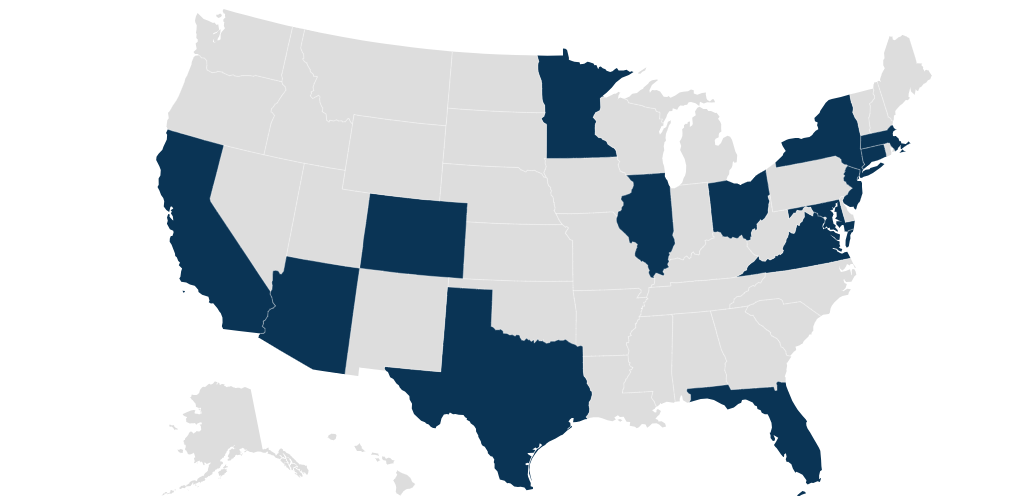A new study examines U.S. household attitudes toward solar power and ranks the most affordable states for adopting it

If you’re alive, you understand how important taking climate change seriously is. The world on Tuesday night saw climate change take center stage in political discourse between Vice President Kamala Harris and former President Donald Trump and their approach to combating this unescapable issue affecting our livelihood & future.
Both candidates acknowledged the growing threat, but with very different aproaches. Harris emphasized clean energy investments, job creation, and the critical role of reducing the nation’s carbon footprint. Trump, on the other hand, focused on economic protectionism, critiquing foreign influence and touting domestic energy production.
While the political debate highlights the broader national conversation on climate, a recent solar energy report conducted by ElectricityRates focuses on a key element of tackling climate change: residential solar power. Solar energy not only offers a sustainable alternative to traditional energy sources but also presents a path to energy independence and long-term cost savings for consumers. Yet, despite these benefits, significant barriers remain, making state-level incentives vital to encouraging widespread adoption. 
Here are the key findings from this report:
Growing Consumer Interest in Solar Power
Many homeowners are eager to switch to solar energy. Cost savings are the leading motivator, with 80% of respondents from their survey indicating that lowering their energy bills was a significant factor in their interest. The promise of long-term financial benefits, coupled with the potential for greater energy independence, is what’s propelling more excitement and interest in solar alternatives.
Sustainability also plays a major role, with roughly 2 out of 3 respondents citing environmental concerns as a key reason for considering solar energy. Extreme weather has put the U.S. into a chokehold this year; tornadoes, hurricanes, and flooding, and the frequency is increasing. Many Americans are becoming more aware of their carbon footprint and are seeking cleaner solutions.
Barriers to Solar Adoption
Despite consumer interest, the report uncovered that several challenges are preventing more mainstream adoption of solar power. The biggest hurdle for Americans is the initial cost of installation. 3 out of 4 respondents said the upfront expense pushes them away. Regardless of savings down the road, Americans are cautious about making the initial investment.
Considering the cost of living and inflation woes; also highlighted in this week’s debate, it’s not surprising that many households have to worry about their well-being before Mother Earth’s.
The report also discovered there’s a huge knowledge gap regarding solar energy options and what incentives are available. 71% of respondents were unfamiliar with their local solar programs or incentives. This means there’s a huge missed opportunity for local governments & community leaders. It kind of feels like maybe they don’t want people to know about these programs. It’s a lot to unpack. Households may be interested in solar energy, but if they’re unaware of how to navigate the whole process and the costs associated with it, they might not even bother.
State-Level Incentives Making a Difference
To address these financial and knowledge gaps, many U.S. states have implemented robust incentive programs to promote solar adoption. That can be tax credits, rebates, and net metering options. These allow homeowners to sell excess solar energy back to the grid. These programs can lower the cost burdens associated with the installation and provide more long-term financial benefits.
For example, California’s Solar Rights Act ensures that homeowners have the ability to install solar systems without undue restrictions, while New York’s NY-Sun Initiative offers comprehensive financial support for solar projects. These initiatives align with Harris’s emphasis on job creation and clean energy manufacturing, as they help build a sustainable, domestic clean energy industry.
Despite these efforts, the survey found that many Americans are still in the dark. Over 70% surveyed were unfamiliar with their local solar incentives. As mentioned in both this study and Harris’ remarks in the debate, a more coordinated effort to educate the American public and promote clean energy solutions is necessary to combat climate change.
The report concluded with a detailed ranking of which states in the U.S. are promoting solar power the most and providing the most affordable solar power solutions for residential households. Here’s a list of their rankings:
-Arizona
-California
-Colorado
-Connecticut
-Florida
-Maryland
-Massachusetts
-Minnesota
-New Jersey
-New York
-Ohio
-Texas
-Virginia
At the end of the day, climate change is a pressing issue, and it doesn’t care about your politics. To ensure future generations have a planet to call home, innovative solutions like solar energy are a must. This report highlights ways our elected leaders can better tackle issues and make solar adoption more widespread. It also pinpoints states where Americans who are ready to take the plunge into solar power, have a better chance at saving money and helping contribute to a more sustainable future.







